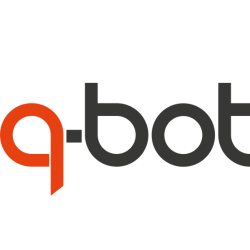Twelve million homes in the UK have suspended timber floors and insulating them could reduce total UK CO2 emissions by an equivalent amount to shutting down Drax power station, the third-largest coal-fired power station in Europe.
Q-Bot has developed a range of retrofit robots that can insulate an existing building from below the floor, without any disruption, waste, or cost associated with removing floors. This robotically installed floor insulation can save as much as 20% of heat energy and thus energy bills, improving comfort while reducing CO2 emissions and localised pollution. So far over 4,000 homes benefited from this solution.
Tomas Lipinski is the founder, a board director, and the Chief Science Officer of Q-Bot. His responsibilities cover retrofit science, building physics, legislation, regulation, academic collaborations, research and development, and new markets. Tomas describes how Q-Bot has been growing revenue at 70% year on year for the last three years and as the company grows it faces different, and often mounting, challenges. It needs its leadership to transition from startup mode to scale-up mode. He recognises that writing a 3,000-word government consultation response or a grant application favours lone work but is not the best method to run the company. He sees that the Shott Start Up Accelerator can help to develop collaborative leadership and effective management of teams within the company.

Q-Bot are engaged in talks with a $5 billion turnover US company that sees Q-Bot as potentially transformational partner for them. This creates an enormous opportunity for them as well as a very costly and technologically complex challenge, combined with new markets and new business models, and is unlike anything they have attempted before. The next 12 month will be critical when it comes to success or failure of that plan. Tomas believes the Shott Scale Up Accelerator can help him make this transition successfully, powering the growth of the company in the UK as well as through the overseas markets.

